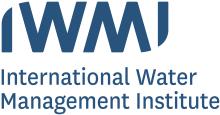Resource information
Following from the Comprehensive Assessment of Water Management in Agriculture project, this book examines the relationships and linkages between land use and water management and social systems. Given that agriculture is the largest economic sector in many developing countries, this volume provides innovative ideas for the prevention of land degradation and for improving the sustainability of food production in the developing world. It focuses on positive examples of sustainable use of natural resources and is aimed at the non-specialist scientist.Some of the key issues discussed by the authors include:
the status of the world’s ecosystems with respect to land and water resources and global patterns of land and water degradation
improved management options at different scales - both through theoretical contexts and practical case studies
what were the driving forces and necessary conditions for the case studies presented to be successful?
A number of conclusions noted demonstrate that:
improved land management can be good for both agricultural livelihoods and water resources simultaneously
mitigation of land degradation can result in significant increases in water productivity, and this can be achieved using existing technologies and approaches
positive results cannot occur without an understanding the socio-political contexts of the area.
Some of the main recommendations highlight the need for:
policy and local level interventions that can stimulate resource-conserving agriculture that improves land and water productivity and works with long term ecosystem sustainability thinking
the understanding of land use at the landscape level and managing these as a suite of potential activities with ecosystems in common
human societies to be recognised as integral components of these landscapes
taking the right steps now in agriculture water management as it will significantly reduce poor people’s vulnerability to climate change by reducing water-related risks.



